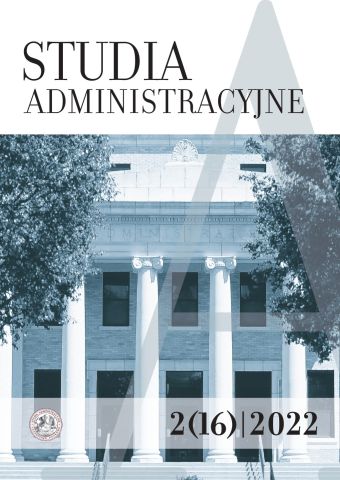





| Authors: |
Marcin
Stoczkiewicz

ClientEarth |
| Keywords: | state aid environmental principles energy investments nuclear energy |
| Data publikacji całości: | 2022-12-30 |
| Page range: | 14 (29-42) |
| Klasyfikacja JEL: | K23 K32 |
| Downloads ?: | 267 |
| 1. | de Sadeleer N., EU Environmental Law and the Internal Market, Oxford University Press 2014. |
| 2. | de Sadeleer, Environmental Principles. From Political Slogans to Legal Rules, Oxford University Press 2005. |
| 3. | Hancher L., State aid, (w:) Ch. Jones (red.), EU Energy Law, Volume II, EU Competition Law and Energy Markets, Sweet & Maxwell UK, Leuven 2007. |
| 4. | Korzeniowski P., Zasady prawne ochrony środowiska, Wydawnictwo Uniwersytetu Łódzkiego, Łódź 2010. |
| 5. | Krämer L., EU Environmental Law, 7th ed., Oxford University Press 2011. |
| 6. | Kutenicova E., Seinen, A.T., Environmental Aid, (w:) W. Mederer, N. Pesaresi, M. van Hoof (red.), EU Competition Law. Volume IV, State aid, Claeys & Casteels Publishing, Leuven 2008. |
| 7. | Macrory R. (red.), Principles of European Environmental Law, Europa Law Publishing, Groningen 2004. |
| 8. | Porzeżyńska M., Pomoc państwa na produkcję energii ze źródeł odnawialnych w prawie Unii Europejskiej, C.H. Beck, Warszawa 2020. |
| 9. | Quigley Q.C., European State Aid Law and Policy, 2nd ed., Hart Publishing, Oxford 2009. |
| 10. | Stoczkiewicz M., Environmental aspects of State aid for energy investment projects, (w:) B. Vanderheusen, L. Squintani, EU Environmental and Planning law Aspects of Large-Scale Projects, Intersentia, Cambridge–Antwerp–Portland 2016. |
| 11. | Stoczkiewicz M., Pomoc państwa dla przedsiębiorstw energetycznych w prawie Unii Europejskiej, Wolters Kluwer, Warszawa 2011. |
| 12. | Stoczkiewicz M., Śniegocki A. (red.), Subsidies: a driving force or obstruction for the Polish energy transition. Analysis of State aid for the power sector in Poland, ClientEarth, Warsaw 2020. |
| 13. | Stoczkiewicz M., The Polluter Pays Principle and State aid for Environmental Protection, Journal of European Environmental & Planning Law 2009, nr 2, s. 171–196. |
| 14. | Stoczkiewicz M., The Emission Trading Scheme in Polish Law: Selected Problems Related to the Scope of Derogation from the General Rule for Auctioning in Poland (November 19, 2011). Yearbook of Antitrust and Regulatory Studies 2011, nr 4(4), s. 96–113. |
| 15. | Szafrański A., Pomoc publiczna dla energetyki jądrowej – na przykładzie decyzji Komisji Europejskiej w sprawie elektrowni jądrowej Hinkley Point C w Wielkiej Brytanii, Forum Prawnicze 2016, nr 2(34), s. 18–32. |
| 16. | Van de Casteele, K., Hocine M., Favouring certain undertakings or the production of certain goods. Selectivity, (w:) G. Lo Schiavo, The General Court Reassess the British Aggregates Levy: Selective Advantages „Permeated” by an Exercise on the Actual Effects of Completion? European State Aid Law Quarterly 2013, nr 2, s. 383–390. |